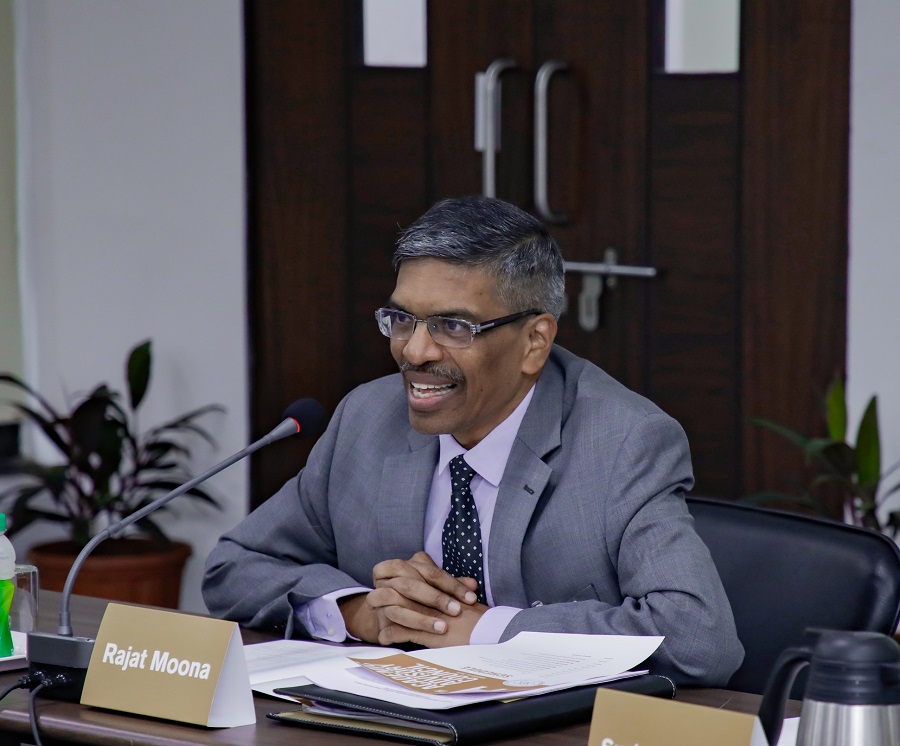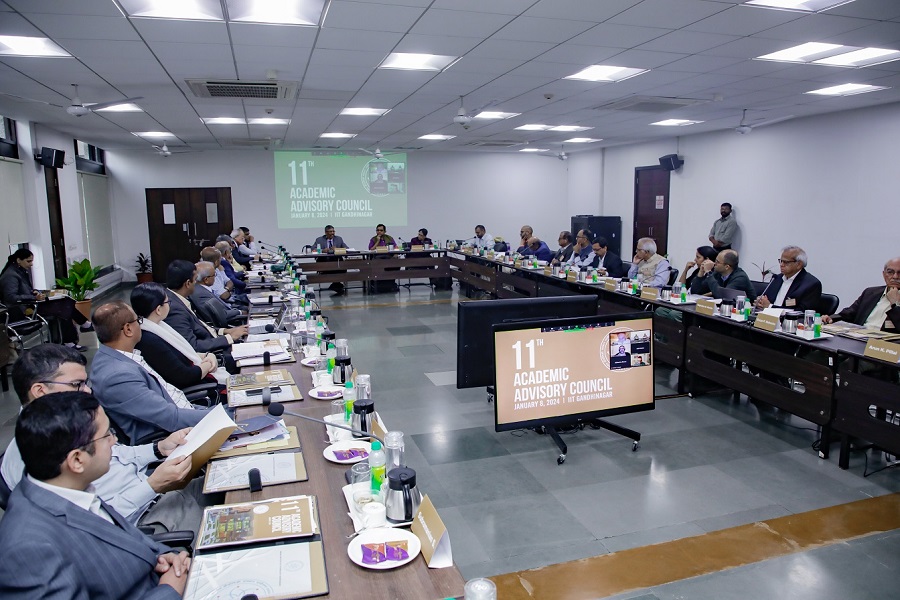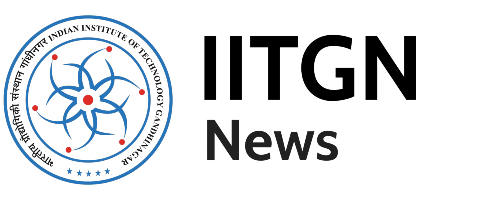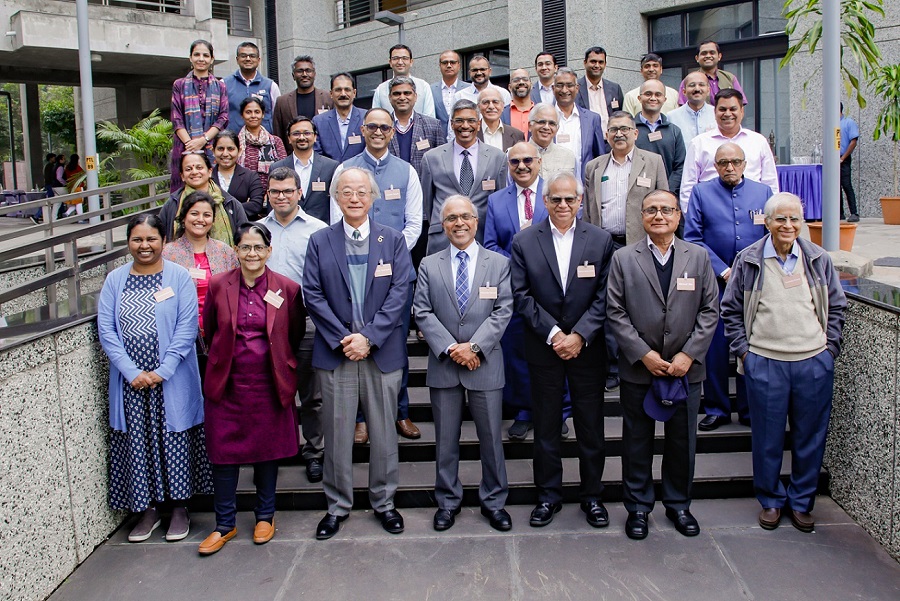STORY CREDITS
Writer: Shivangi Vasudev Bhatt
Photo: Mayur J Bhatiya
The 11th Academic Advisory Council (AAC) of the Indian Institute of Technology Gandhinagar (IITGN) was held on January 08, 2024. One of the most sought-after annual events of the Institute saw about 20 distinguished academicians from India and overseas, as well as 30 faculty members from IITGN, debate and share their expertise on some of the most significant matters for the growth of the Institute in coming years.
This year’s AAC had eminent academicians from some of the most prestigious institutes such as University of California, USA; University of Miami, USA; ISCTE University Institute of Lisbon, Portugal; University of South Florida, USA; Asian Institute of Technology (AIT), Thailand; IIMA; IIT Kanpur; IIT Bombay; and IIT Delhi; among others.
In his opening remarks, Prof Rajat Moona, Director, IITGN, underlined the instrumental role of AAC in shaping the academic landscape at IITGN over the years and in fulfilling future aspirations of the Institute. He said, “Over the years, IITGN has benefitted a lot at several levels from the inputs received through in-depth discussions in the Academic Advisory Council as well as Leadership Conclave. It has helped us not only shape our academic trajectory but also inculcate the ‘IITGN ethos’, which we all are very proud of. As we are poised to expand, start new academic programmes/initiatives, and take on new opportunities and challenges, we look forward to more fruitful ideas, feedback, and suggestions to implement at IITGN.”
The day-long dialogues garnered several strategic and expert inputs to pave the way for the Institute. During the discussion on ‘Faculty Evaluation and Growth’, led by Prof Dilip Sundaram, the council members suggested to look at it with a multi-pronged approach, such as the impact they create through their teaching and research and its quality rather than quantity, their engagement with current and past students; and their contribution for a social or collective cause to upskill faculty of other engineering colleges. And all these can be evaluated through a mechanism of self-assessment. They also emphasised the need to create avenues for leadership roles for faculty members, which they can look forward to beyond professorship.

The discussion on ‘Promoting Student Well-Being’, led by Prof Subramanian Sankaranarayanan, received several inputs on different dimensions of holistic well-being. It was recommended by council members to train faculty, students, and staff in well-being practices and identifying persons who may be facing mental health issues; have a virtual or 24*7 counselling set-up to help people who don’t wish to come face-to-face to discuss their issues; employ technological tools to evaluate a person’s physical and mental health on regular basis and make them aware of it; encourage to follow healthy well-being practices such as adequate sleep, reduced screen time, physical activity or sport, cutting down on junk food, spending time in nature, and nurturing meaningful social connections; and learn the importance of respecting each other no matter what. It was also discussed that parental understanding and support also play a crucial role in the well-being of a student.

The next session, led by Prof Abhijit Mishra, deliberated on a pertinent yet often overlooked aspect of institutional growth, i.e. ‘Holistic Staff Development’, to acknowledge people who work behind the scenes and provide them with opportunities for growth. The panel of experts advised encouraging staff to pursue higher education or skill development by funding their courses or providing low-interest loans for the same; exploring CSR funding opportunities for capacity building; providing ways to gain exposure through exchange programmes; empowering qualified staff members to run their own short programmes; and nurture leadership in them so that they can actively contribute to the Institute’s growth. The council members also unanimously agreed to involve staff members in institutional activities to make them feel part of the community and also recognise their excellent work publicly to boost motivation levels.
The 11th AAC also brought up the topic of ‘New Academic Programmes and Initiatives’ to meet the changing demands of the industry. The discussion, led by Prof Nithin George, collected ideas on the identification and development of such programmes. It came out prominently during the session that with the kind of fast-changing technology such as AI and challenges of climate change, we need to be future-ready in terms of higher technical education, create a dialogue with the industry to know their needs, practice multidisciplinarity, and empower students with the ability to teach themselves new things. It was also emphasised to equip students with the basics of Intellectual Property, company laws, accounts, marketing, communication, public speaking, etc. so that they are prepared in a holistic way for the real world.
The last topic of the council was ‘Fostering Industry-Academia Partnership’, in which the participants suggested actively marketing the unique facilities available at IITGN and begin dialogues with industries regarding their needs, involve more students in industrial projects, and innovate solutions for societal challenges. All these will build the industry’s trust in the Institute in the long-run to forge new collaborations. The dialogue was led by Prof Kaustubh Rane.
Earlier in the morning, Prof Sushobhan Sen, convener of the event, gave an overview of the previous AACs and how the inputs from those meetings have been immensely useful to the growth of IITGN. The meeting ended with summary remarks on the fruitful discussions by all invited council members.
This news has been covered by some of the leading Indian newspapers and media agencies. Click on the links below to read more.

